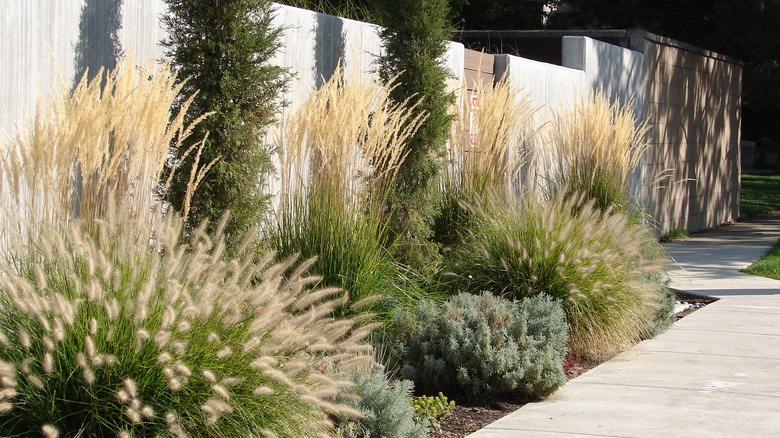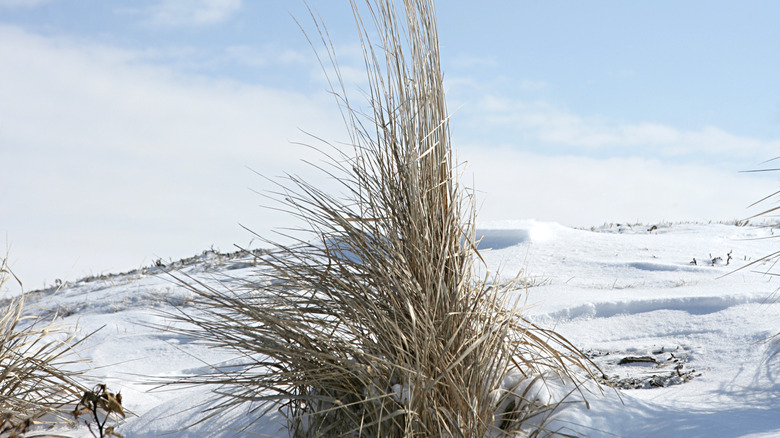The Best Time Of Year To Cut Back Your Ornamental Grasses
When used as an accent plant, ornamental grasses can provide significant advantages in your landscaping design. These plants are great for many reasons, including their varying heights, seed head textures, and colors. Many ornamental grasses even thrive with very little water. It's smart to cut them back once a year to retain the best prospects for growth, health, and strength in the plants. Ideally, you will cut back the ornamental grasses just before the new growing season (late winter or early spring).
Many people choose to leave the stalks in place for the winter, as the height of the plants provides a visual element to your landscaping at a time when no flowers are blooming, and trees have lost their leaves. The height and texture of these plants are nice to have during winter. Additionally, if you live in an extremely cold area during the winter, you can protect the growth line of the ornamental grasses from harm by leaving them standing rather than cutting them until closer to the spring and warmer weather.
Some people choose to cut back the ornamental grasses as soon as they turn brown in the late autumn or early winter. This negates some of the benefits mentioned earlier. However, some people just prefer to do all of their fall landscaping cleanups simultaneously to simplify the work needed. Some ornamental grasses don't look good in winter, either.
How to cut back ornamental grasses safely
You can use a few tools to trim back your ornamental grasses. For small clumps, you can use pruning shears. If the stalks are thicker or the entire clump is dense, you may want to use powered hedge trimmers. If the stalks are tall enough, you can simplify the trimming process using twine to tie the group together. You also can wrap them with a bungee cord or even duct tape in multiple spots if they are extremely tall. However, it's easier to manage the entire group and to cut them evenly when they have some sort of wrap around them.
Cut the ornamental grass plants to a height of four to six inches off the ground. This height should expose the crowns of the plants to sunlight, which helps with growth as the weather warms. After cutting them, you should remove the debris and cut stalks from the area. Use a rake to pull loose material away from the core of the clump, which reduces thatch buildup that could cause excess dieback and rot in the middle of the clump.
If you fail to cut back the ornamental grasses outside the growing season, you may notice green shoots popping up among the dormant plants. Eventually, these green shoots will take over, and you won't notice the brown plants anymore. This accumulation can cause health problems for the clump in the future.

